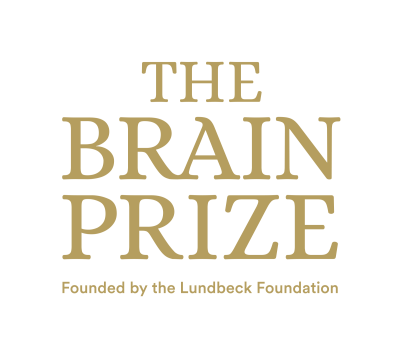When you forget
Your brain holds memories from your entire life so when it fails you lose something of yourself. The brain is not just a part of you - it is you

Explainer: Sleep and Memories
In this film, Brain Prize winner in 2011, György Buzsáki explains what happens in the hippocampus while we sleep and why it is important for how memories are formed
Portrait Film: Brain Prize Winners of 2018
An interview with the four Brain Prize winners of 2018 about their scientific journeys and key scientific discoveries in the field of Alzheimer’s research

The Brain Prize
Since 2011, the Lundbeck Foundation has awarded The Brain Prize, which is the world's largest prize in brain research. This award, amounting to 10 million DKK (€ 1.3 million), is presented to researchers who have made groundbreaking contributions to neuroscience.
The Brain Prize 2011 was awarded to
In 2011, The Brain Prize was awarded for the wide-ranging, technically and conceptually brilliant research on the functional organization of neuronal circuits in the cerebral cortex.
- György Buzsáki, Biggs Professor of Neuroscience, at NYU School of Medicine.
- Tamás Freund, Professor and Director of the Institute of Experimental Medicine, Hungarian Academy of Sciences, and Head of the Department of Neurosciences, Pázmány Péter Catholic University, in Budapest.
- Péter Somogyi, Professor of Neurobiology in the Department of Pharmacology at the University of Oxford. He is a Fellow of The Royal Society and a Fellow of the Academy of Medical Sciences.
Click here to read more and watch the films about the three award recipients and their groundbreaking research in 'the functional organization of neuronal circuits in the cerebral cortex':
The Brain Prize 2018 was awarded to
In 2018, The Brain Prize was awarded for groundbreaking research on the genetic and molecular basis of Alzheimer’s disease, with far-reaching implications for the development of new therapeutic interventions as well as for the understanding of other neurodegenerative diseases of the brain.
-
Michel Goedert, Worked at the Medical Research Council Laboratory of Molecular Biology in Cambridge as a Programme Leader since 1984 and was Head of its Neurobiology Division between 2003 and 2016. Since 2014, he has also been an Honorary Professor at Cambridge University.
-
Christian Haass, Head of the division of Biochemistry of the Biomedical Research Center (BMC) of the Ludwig-Maximilians University and speaker of the German Center for Neurodegenerative Diseases (DZNE) in Munich. He is a member of the European Molecular Biology Organization (EMBO), the Leopoldina, and the Bavarian Academy of Sciences and Humanities.
-
John Hardy, Chair of Molecular Biology of Neurological Disease at the Reta Lila Weston Institute of Neurological Studies, University College London. He is a member of EMBO, the Academy of Medical Sciences and the Royal Society.
-
Bart De Strooper, Professor of molecular medicine at the KU Leuven and VIB, Belgium and professor in dementia at the University College London, UK. Since 2016 he has been the scientific director of the UK-Dementia Research Institute.
Click here to read more and watch the films about the four award recipients and their groundbreaking research in 'the genetic and molecular basis of Alzheimer’s disease':
